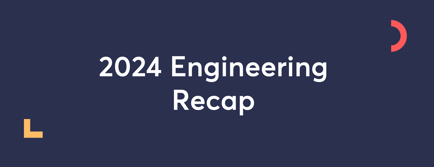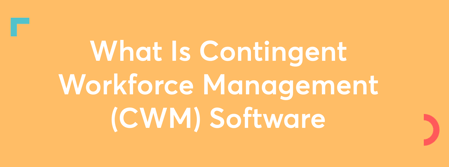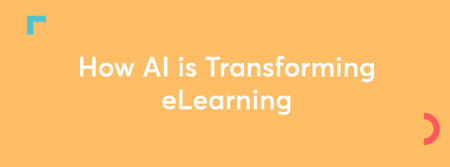How To Write a Clear & Effective Project Brief
- 5 Mar 2021
- 4 mins read
- Posted in
As a project manager, you may be well-versed with managing a team you work with in close proximity. But working with a remote team of freelancers is a different ballgame. Getting the best out of a remote team requires a very particular set of skills — one of which is the ability to write clear and effective project briefs.
A strong project brief helps you clarify your expectations right at the beginning, so that you get exactly the kind of results you’re looking for. It can make your freelancers’ jobs that much easier, and can be the first step towards a healthy, long-lasting relationship. A well-written brief can mean the difference between a successful project, and a project that’s mired in ambiguity.
Looking to develop and hone this skill? Follow these 5 steps.
1. Identify your objectives - set SMART goals
When it comes to writing a great project brief, the best place to start is at the end. Consider the objectives of the project — what are the end results that you want to achieve, how will they affect your business as a whole, and what long-term impacts are they likely to have. These answers may seem obvious to you, but do keep in mind that freelancers are not privy to the day-to-day dealings of your firm, so they may not know these things. Seeing a clear set of objectives written down will give them valuable context that can help them better navigate the project.
In order to create meaningful objectives, try setting ‘SMART’ goals — that is, goals that are Specific, Measurable, Achievable, Relevant and Timebound.
SMART goals leave little room for confusion and misunderstanding. For instance, telling your freelancers that you want to ‘increase website traffic’ and ‘grow your social media accounts’ do not really mean much. After all, even 10 new fans on your social media page at the end of the quarter can be termed as growth! Put down your goals in a SMART format instead. For example, say that you want to:
- Attract 10,000 new website visitors every month
- Increase social media following by 1000 fans every month
- Achieve sales worth £10,000 per quarter
This tells your freelancers exactly the scale at which you want to grow, and sets the tone for the project.
2. Define key deliverables
Now that your freelancers know what they are working towards, it is important to define what exactly you expect from them. In keeping with your SMART goals, ensure that these expectations are conveyed to your freelancers in specific and objective terms.
Don’t just tell them that you want to “update your digital content strategy and expand into new markets”. This leaves your instructions open to interpretation — your freelancer may agree to the project thinking that you want just a couple of new blogs every month, whereas you may have had a more aggressive approach in mind. To avoid such misunderstandings, create a detailed project brief, and write down all their deliverables as bullet points like this:
- Deliver blog posts of at least 1500 words each every 3 days
- Create a social media strategy for 12 months
- Translate all the pages of the corporate website into French
Keep in mind that this too, is a very broad definition of the deliverables — it just works to give your freelancers a fair idea of the scope and volume of work. Your brief will need to go into each bullet point in greater detail. For instance, what will the topic for each 1500-word blog article be? Will you be providing the topics or will your freelancers have to come up with them on their own? Which social media platforms do you intend to operate on? And so on.
3. Discuss timelines and budgets
Now that your freelancers have a better idea of the amount of work the project entails, it’s time to discuss two crucial points:
- Can they deliver on time?
- Are they within your project budget?
Your SMART goals are time bound, so it’s important that your freelancers understand exactly when you’re looking to complete the work by. Rather than one final deadline, it’s recommended that you create smaller project milestones. By when do you intend to wrap up preliminary discussions? When should they present the first draft of the work? How long would you typically take to go through it and give them feedback? Ascertaining these timelines will help them plan out their work, and will help you avoid last-minute panic or an unforeseen delay.
Likewise, it’s important to clarify how much you’re willing to pay for the work, right at the briefing stage. Make sure your freelancers understand exactly how much they’re expected to deliver for the amount that you’re paying. Ensure that you know about any extra charges you might incur — for instance, some professionals charge an extra amount for fast-tracking your work, or for new iterations.
4. Clarify the target audience
This is one of the first questions your freelancer is likely to ask you during the initial project discussions. Your project brief should offer a very clear picture of your target audience.
Be specific about the demographic you’re targeting, the market you’re operating in —and include details about your customer/buyer/supplier personas wherever possible. Without this information, your freelancers could spend hours writing, coding, designing, or creating assets that turn out to be wildly unsuitable for your target audience. Asking them to rework on these assets will only add to your budget and throw off your carefully planned timeline.
5. Insights into benchmarks, branding and other specifics
Finally, your brief should offer a detailed insight into any specifics that you think will help your freelancers do their job better. These could be:
- Detailed brand guidelines
- Any critical restrictions or limitations they need to consider
- A thorough competitor analysis
- Logistical details about the formats, sizes and resolutions they need to follow
Writing a strong brief can be time-consuming, especially when you have multiple project deadlines to meet. However, putting in the effort to write everything down clearly and succinctly (using bullet points where possible) will ultimately save you time and money. It will cut down on the number of iterations and enable your freelancers to work independently, without you needing to intervene at each step.

Richa Dayal
Speak to us to find out how we can help you pay your contractors more efficiently
Related articles
What is a Vendor Management System (VMS)? A Complete Guide
What is a Vendor Management System (VMS)? A Complete Guide
Discover what a Vendor Management System (VMS) is and why it’s essential for managing your workforce. Streamline vendor management with ease.

2024 Engineering Recap
See how we enhanced features and added automation in 2024 to improve TalentDesk user experience. Here's a full recap and a look ahead to 2025.

What Is Contingent Workforce Management Software?
Discover how contingent workforce management software enhances cost savings & access to talent. Learn about essential tools, compliance & best practices.

Top 12 Mental Health and Wellbeing Platforms for 2025
See the top mental health and wellbeing platforms for 2025. From guided meditation to mood tracking, get the best apps to support your employees' health.

How AI is Transforming eLearning
See how AI is transforming eLearning with personalized experiences, content, and predictive analytics, enhancing education for students and teachers alike.

Deel vs. the Competition: Discover the Best HR Software Alternatives
Discover the best Deel alternatives for global HR management. Compare features, pricing, and reviews to find the best solution for your global workforce.

AI in Gaming: The Future of Artificial Intelligence in Game Development
The ultimate guide to AI in the gaming development industry. Learn how Artificial Intelligence is revolutionizing NPCs, game design, and player experiences.

Phoenix Rising: AI-Powered Freelance Talent Discovery Takes Flight
Discover Phoenix: the AI-powered assistant revolutionizing freelance talent discovery. Connect faster, smarter, and more securely with top freelancers.
The Ultimate Guide to External Game Development
The Ultimate Guide to External Video Game Development
Explore our ultimate guide on external game development, covering crucial strategies, tools, and tips to manage freelance developers efficiently.

Top 10 Best Video Animation Agencies
This is an overview of our favorite and best animation agency choices. Check out animation examples of these top animation agencies in our top 10 list.
